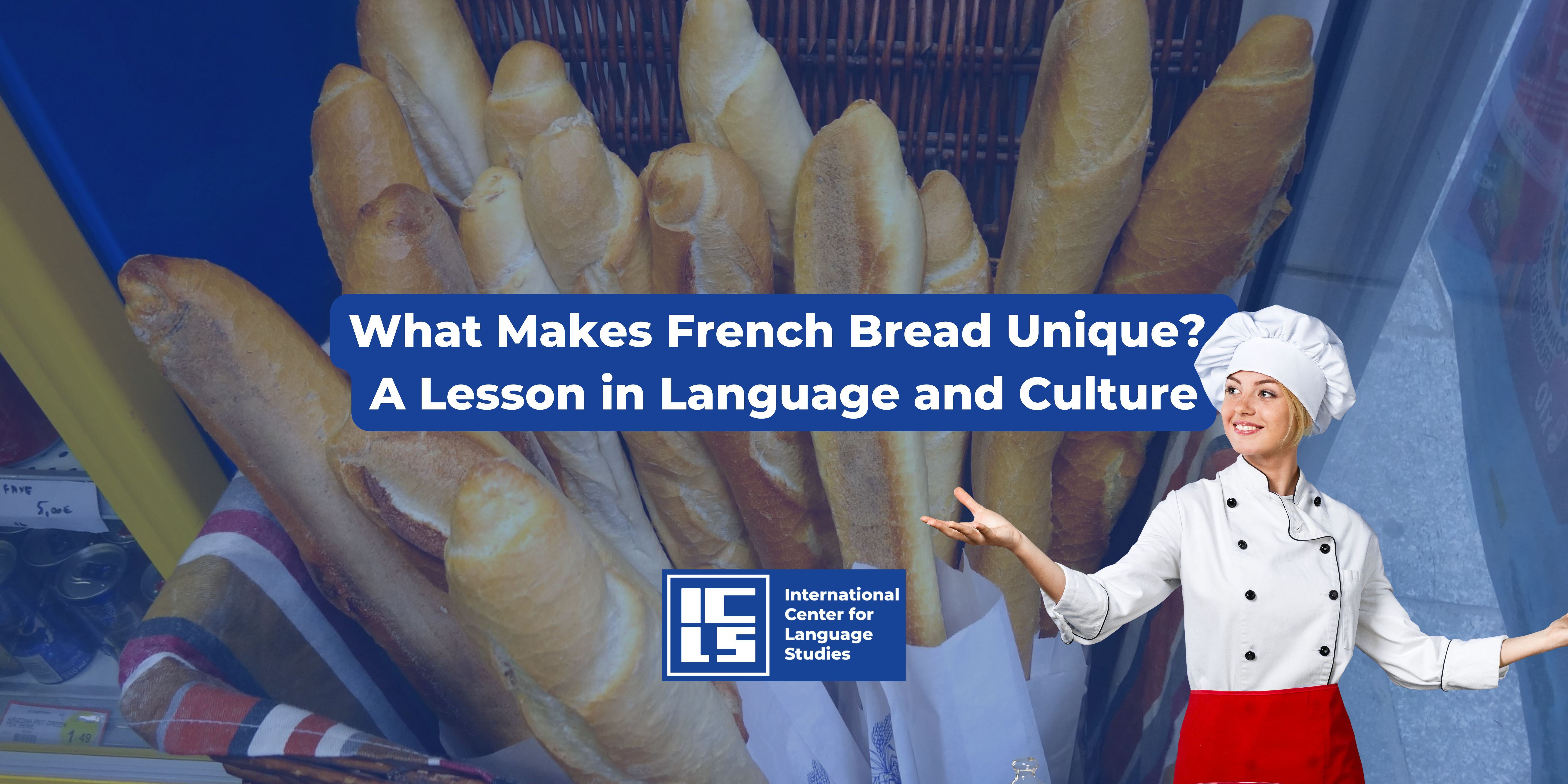What Makes French Bread Unique? A Lesson in Language and Culture

French bread, particularly the iconic baguette, is cherished around the world for its taste, texture, and the tradition it embodies. Behind its simplicity lies a deep connection to French culture, one that extends beyond just food into the fabric of everyday life. From the fermentation process and technique to the quality of the flour and the strict rules that govern artisan bakeries, French bread is a symbol of craftsmanship and heritage.
But bread in France is more than just a culinary staple—it also serves as a window into cultural habits and traditions. And in our French language classes, we go beyond teaching vocabulary and grammar. We delve into these cultural nuances, addressing stereotypes and exploring the differences between French and American habits. This is what makes our classes unique: we treat language as a living thing, infused with history and tradition.
Bread and Language: A Cultural Connection
Just as French bread is more than its ingredients, language learning is more than just mastering grammar. French, like any language, is alive with cultural references, idioms, and expressions that carry the weight of history and tradition. For instance, bread has been so central to French life for centuries that it has permeated the language itself. French expressions and sayings revolving around bread are abundant, highlighting its significance in daily life and thought.
When you learn French with us, you aren't just learning words—you are learning the traditions and habits that give those words life. For example, understanding the French obsession with fresh bread and the daily ritual of visiting the bakery can help dispel cultural stereotypes and bridge the gap between different ways of life. In France, bread is a symbol of community and continuity, a daily tradition that reflects the rhythm of French life—something that is quite different from the typical American approach to bread as a mere side dish or convenience food.
We integrate this cultural richness into our classes because we believe that language and culture are inseparable. Learning a language is about more than just speaking correctly; it’s about understanding the people who speak it, their values, and their traditions.
French Expressions About Bread
To illustrate the connection between language and culture, here are some French expressions and sayings that revolve around bread, further emphasizing how deeply it is embedded in French culture:
- Avoir du pain sur la planche – Literally, "to have bread on the board," meaning to have a lot of work to do or a lot on one's plate.
- Long comme un jour sans pain – "As long as a day without bread," referring to something that feels interminably long or dull.
- Gagner son pain – "To earn one's bread," meaning to earn a living.
- Être dans le pétrin – "To be in the dough trough," meaning to be in trouble or a difficult situation.
- Pain bénit – "Blessed bread," referring to something that is a welcome opportunity or an easy task.
- Ça ne mange pas de pain – "It doesn't eat bread," meaning it doesn't cost much or it's harmless to try.
- Manger son pain blanc – "To eat one's white bread," referring to enjoying the good times before difficulties arise.
Each of these expressions reflects not just the importance of bread but also offers a glimpse into French ways of thinking. Bread is synonymous with sustenance, work, and comfort—deeply tied to everyday experiences and how the French view the world.
Language as a Living Tradition
At its core, language is a living tradition, passed down through generations, just like the art of bread-making. When you learn French, you are not only acquiring a set of linguistic tools but also gaining access to the cultural knowledge and practices that shape how people think, live, and interact.
In our language classes, we place a strong emphasis on this connection between language and culture. We explore cultural differences between France and the US, helping students understand not just how to speak French, but how to live it. We break down stereotypes, compare daily habits, and immerse students in the traditions that make the language meaningful. Through this approach, students gain a deeper understanding of the French-speaking world and how language reflects the values and customs of its people.
So, when you study with us, you aren’t just learning how to ask for a baguette in a bakery—you are gaining insight into why bread plays such a central role in French life, and how it has shaped the language itself. In this way, we bring the language to life, helping students appreciate the beauty and depth of the words they are learning.
Bread and Culture: Bringing it All Together
French bread is more than a food; it is a symbol of tradition, craftsmanship, and culture. Just as we learn about the art of bread-making, we also learn about the language that surrounds it, gaining insights into the daily lives of the people who cherish it. In our classes, this cultural immersion is at the heart of our approach. Language is a living, breathing thing, infused with the traditions that have shaped it over centuries.
By studying French with us, you are not just mastering a language — you are stepping into a world of tradition and culture, one where the daily ritual of buying bread can reveal deep insights into the French way of life. And along the way, you'll gain a rich understanding of how language and culture are intertwined, allowing you to speak French with greater confidence and authenticity when you travel to France.


